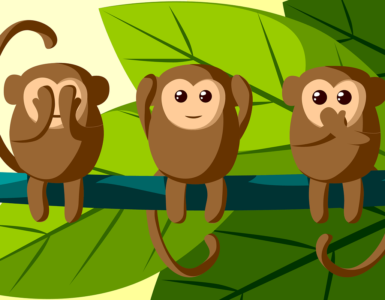Even though this article focuses on the journey of twin flames, as we will discuss the Runner here to help our Chaser friends better understand what they are experiencing, it remains true that emotional dependency is not a specific issue exclusive to twin flames, but rather a common problem among human beings.
Therefore, if you are not a twin flame, remain open, as the mechanisms highlighted here regarding the Runner are the same as those in a typical relationship.
Remember: what matters is not what you know, but what you apply!
So, when discussing solutions and considering that you may find yourself in emotional dependency, the only question you need to ask yourself is this:
What solution am I applying on a daily basis to overcome this?
Any other question is secondary.
What is emotional dependency?
Here are the 9 characteristics of emotional dependency according to the classification by American psychologist Gregory L. Jantz. Emotional dependency is:
1. Having difficulty making decisions without advice or validation from others.
2. Relying on others to take on responsibilities in important areas of life (income, administrative management, health, household organization, etc.).
3. Fearing and avoiding any disagreement with the interlocutor (fear of conflicts, rejection, exclusion).
4. Having difficulty starting projects or doing things independently.
5. Feeling anxious when alone, or at the thought of being alone.
6. Spontaneously taking responsibility for what is not going well (in private or professional life).
7. Feeling obliged to satisfy the demands and needs of others.
8. Really needing the approval and comfort of others.
9. Being unable to set and defend one’s own boundaries.
If, while reading the list, you recognized yourself in at least 5 points, you can consider yourself emotionally dependent. Although it may not be pleasant to acknowledge, the Chaser in the so-called twin flame relationship is also in a certain emotional/affectionate dependency.
Some criteria of a toxic relationship
– Not feeling like oneself and having to hide certain activities from one’s partner.
– Regularly feeling emotionally exhausted, especially in the presence of the partner.
– Needing to ask for permission, either directly or indirectly.
Example of indirect permission: You have a gathering with colleagues, and you feel obliged to bring your partner along. In reality, you know you only have two options. Either you bring them along, and everything will be fine, or you decide to go without them, and they will have a fit.
– Feeling relieved in the temporary absence of the partner.
– Facing threats in the form of ultimatums.
– Regularly excusing the partner’s behavior and rationalizing it.
– Changing one’s opinions to match theirs.
– Having little to no social life.
– Feeling trapped in the relationship and unable to break free.
Why is the Runner in toxic relationships?
The reason is this: when we have emotional deficiencies, whatever they may be, the basic reflex is to fill them with something external to ourselves.
A perfectly logical reasoning, but completely bogus!
And we all fall for it 🙃
(The chaser also uses this same process because they “want” this reunion to regain that feeling of completeness/honeymoon. The chaser then depends on the presence of the other to regain completeness).
Since the Runner has deep emotional deficiencies, they will therefore seek at all costs to fill them with a partner. But for this, they will have to choose a partner who meets certain criteria, that is, someone who also has deficiencies.
Why?
Firstly, it’s instinctive, we seek what we are. If we’re looking to barter, we’re looking for someone who agrees to barter… But in a relationship, everything is obviously implicit. That’s why I say instinctive (to avoid going into details of vibrations/subconscious, etc…)
Secondly, a balanced person will not be interested in an emotionally dependent person because they know full well that the dependent will be in constant need, waiting, complaining, blackmailing, and all the rest.
So if ever a balanced person is interested, they will first help the emotionally dependent person regain their personal autonomy and personal power. But this rarely works because at this stage, these types of people are not looking to learn to meet their needs, but are looking for someone to fulfill them, which is quite different.
In fact, the Runner, like most people, doesn’t even realize that they can fulfill their needs on their own. And when you don’t know something, it’s hard to figure it out on your own.
Furthermore, these mechanisms have been in place since childhood when the child did not have the ability to discern right from wrong, they did their best with what they had. Since then, it has become a behavior. In fact, we have lived in a system where we are taught to depend on someone or something else.
So the basic intention will be to fulfill one’s lacks through a partner.
Fulfill my needs and I’ll fulfill yours : the tacit agreement
For example, a woman who craves attention will need a partner who gives her that attention. What could be better, for instance, than a partner with no goals or dreams in life and who is borderline depressed…? He will then be very caring towards this woman because the relationship will become “his mission”.
He now has a mission and she has plenty of attention.
It’s a match, and everything seems perfect in the best of worlds.
Well, that’s what we believe at first, because this type of relationship will likely deviate towards toxicity, as the foundation of the relationship is not love, but rather trade… well, the absence of something.
“I’ll give you what you need as long as you give me what I need.”
Welcome to “conditional love.” Now let’s see the continuation of the 9 criteria mentioned above in detail.
To go further :
- You can find us on instagram here.
- You can book a session here.
- I invite you to read my introduction on the why of this blog
- Original post on my french blog here.













Add comment